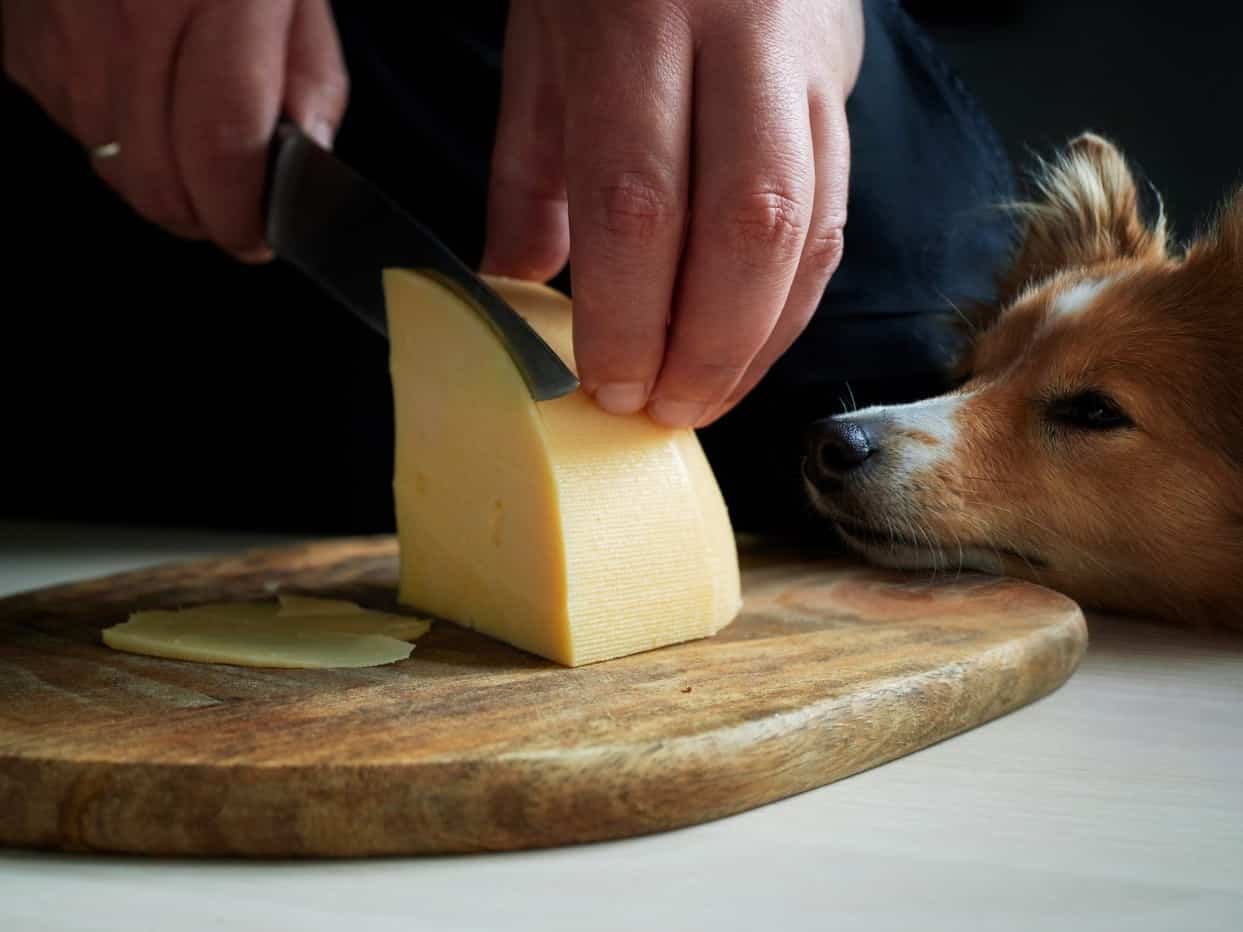Can Dogs Eat Cheese?
Dogs are known for their love for food, and as pet owners, we often like to indulge our furry friends with treats that we think they’ll enjoy. One such human food that many pet owners may consider sharing with their dogs is cheese. However, the question arises: is cheese safe for dogs to eat? Let us delve deeper into today’s article to find out about it.
Can dogs eat cheese?
The answer is YES; dogs can eat cheese in moderation. Cheese is not toxic to dogs and can be a good source of protein, calcium, and vitamins. However, it’s important to note that not all dogs can tolerate dairy products, and feeding cheese to dogs should be done with caution.
Lactose, a type of sugar found in milk, is found in cheese. Some dogs may have trouble digesting lactose, leading to symptoms such as diarrhea, vomiting, and gas. If your dog is lactose intolerant, feeding cheese can cause digestive upset and discomfort. It’s important to monitor your dog’s reaction to cheese and other dairy products and consult your veterinarian if you notice any adverse reactions.
Additionally, cheese is high in fat and calories, which can lead to obesity and other health problems if fed in large quantities. Dogs that are overweight or prone to weight gain should not be fed cheese on a regular basis and should only be given small amounts as a treat.
Types of cheese safe for dogs
Not all types of cheese are suitable for canines to consume. Some cheeses contain high levels of sodium, which can lead to dehydration and other health problems. Some types of cheese may also contain ingredients that are harmful to dogs, such as onions, garlic, and other spices.
Here are some types of cheese that are safe for dogs to eat in moderation:
![]()
Cheddar cheese
This type of cheese is low in lactose and high in protein and calcium, making it a good choice for dogs.
Cottage cheese
Cottage cheese is low in lactose and high in protein, making it a good source of nutrition for dogs.
Mozzarella cheese
Mozzarella cheese is low in sodium and lactose, making it a good choice for dogs with sensitive stomachs
Parmesan cheese
Parmesan cheese is low in lactose and high in protein and calcium, making it a good choice for dogs.
Cheeses to avoid giving your dog
Cheese can be a tasty and enjoyable treat for dogs, but some types of cheese can be harmful to their health. Here are some types of cheese to avoid giving to your dog:
![]()
Blue Cheese
Blue cheese contains a substance called Roquefortine C which can cause vomiting, diarrhea, and even tremors in dogs.
Feta Cheese
Feta cheese is high in sodium, which can cause excessive thirst and dehydration in dogs. It is also high in fat, which can lead to pancreatitis, a potentially serious condition.
Processed Cheese
Processed cheese is high in fat and sodium and can cause digestive upset in dogs. It also contains artificial additives that can be harmful to their health.
Cheese with Garlic and Onions
Cheese with garlic and onions can be toxic to dogs. These ingredients can damage a dog’s red blood cells, leading to anemia.
Moldy Cheese
Moldy cheese can contain mycotoxins, which can cause tremors, seizures, and even death in dogs. It’s best to avoid giving your dog any cheese that has mold on it.
How to feed cheese to dogs
If you decide to feed cheese to your dog, it’s important to do so in moderation. Cheese should be given as an occasional treat and should not be a regular part of your dog’s diet.
Here are some tips on how to feed cheese to your dog:

- Cut the cheese into small pieces to avoid choking hazards.
- Feed cheese in moderation, as it is high in fat and calories.
- Introduce cheese slowly and in small amounts to see how your dog reacts.
- Choose low-fat, low-sodium cheeses that are safe for dogs.
- Avoid feeding cheese that contains added spices or ingredients that are harmful to dogs.
Conclusion
Dogs can eat cheese in moderation, but it’s important to choose the right types of cheese and feed it responsibly. Consult with your veterinarian if you have any concerns about feeding cheese or other human foods to your dog, and always monitor your dog’s reaction to new foods. With proper care and attention, cheese can be a safe and enjoyable treat for your furry friend.
All images are courtesy of Flickr unless otherwise stated.
Featured image courtesy of Flickr.
Looking for the best organic dog foods for your canine? Spare time to check out this article.